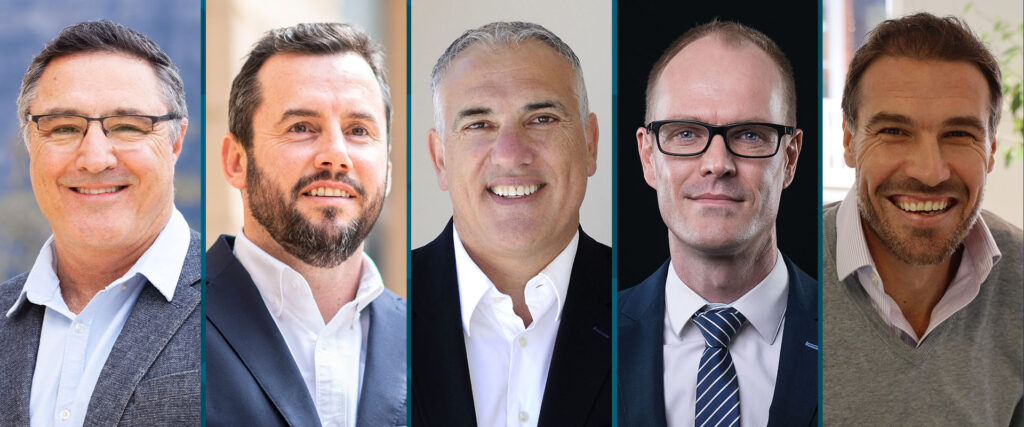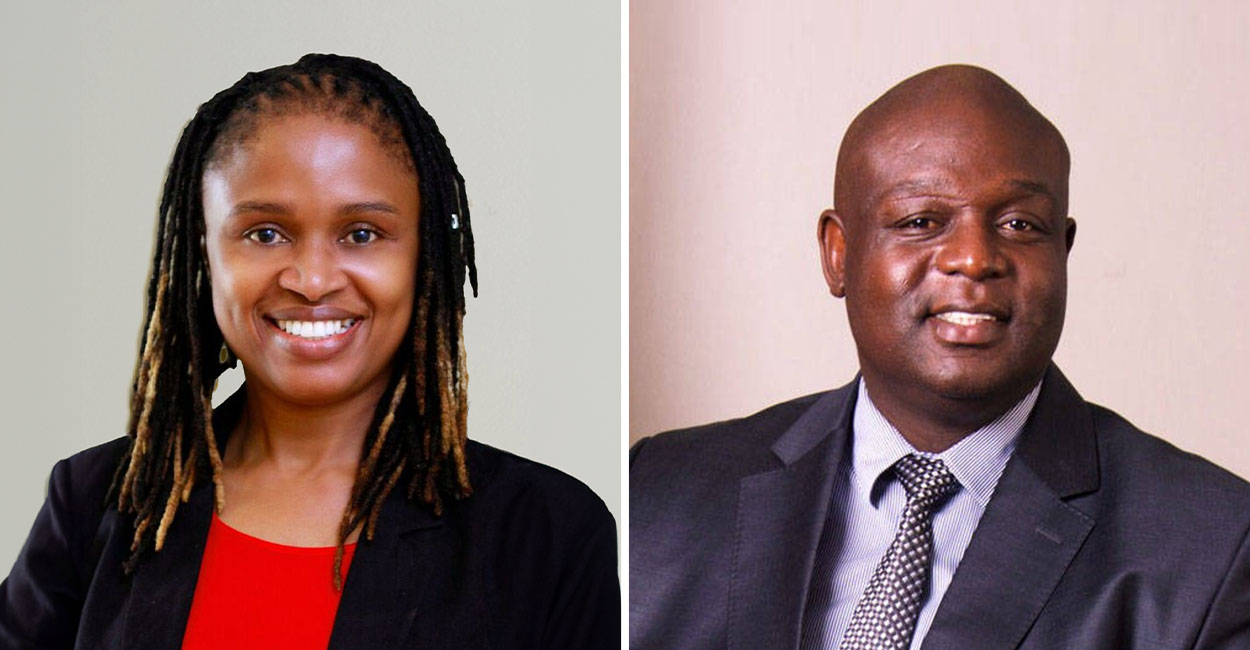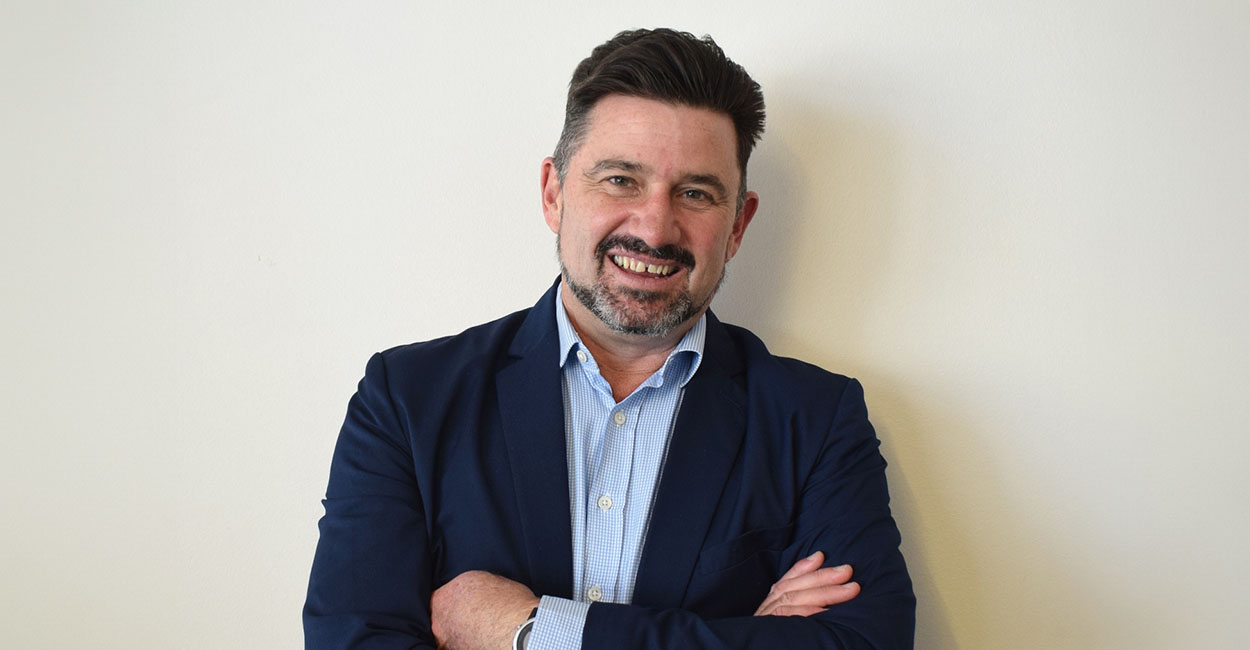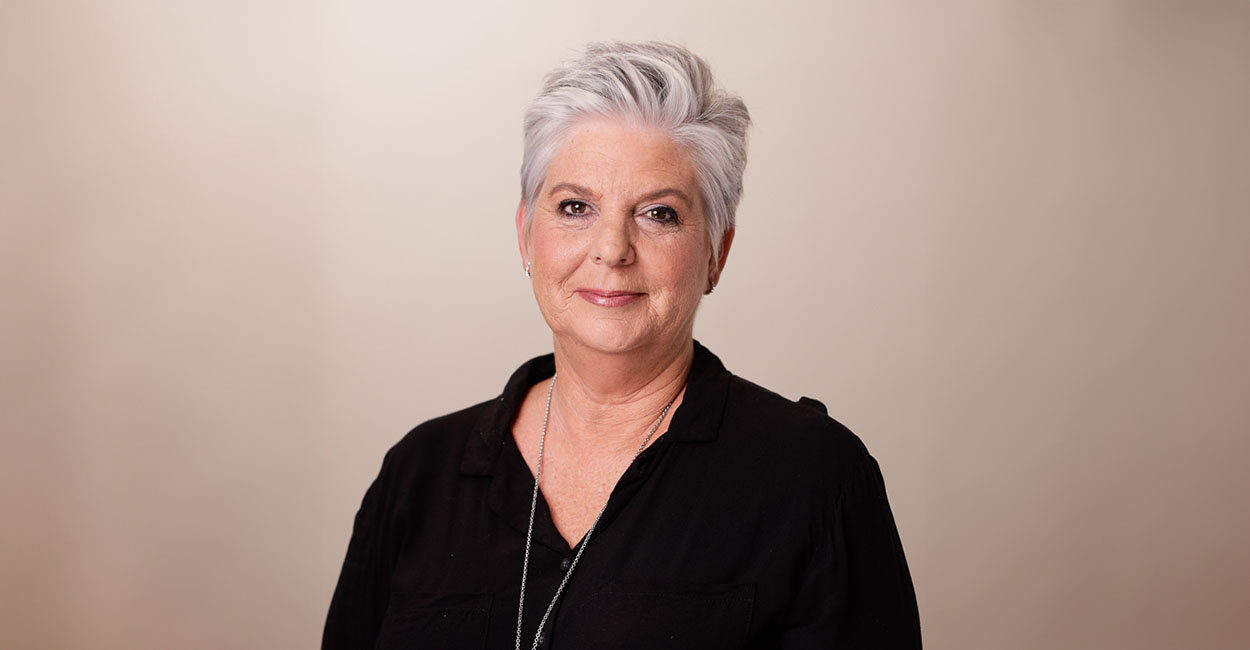MAIN IMAGE: Tony Clarke, MD of Rawson Properties; John Jack, CEO of Galetti Corporate Real Estate; Samuel Seeff, chairman of the Seeff Property Group; Paul Marais, Managing Director of NFB Asset Management; Stefan Botha, Rainmaker’s Marketing Director
Danie Keet
Opening on scenes of fiery devastation, looting and violence, Pres. Cyril Ramaphosa’s SONA 2022 certainly didn’t shy away from acknowledging the dire state South Africa is in. Despite the lack of sugar-coating – or perhaps because of it – the speech has been widely regarded as surprisingly hopeful.
“From a property perspective, the key factors that we were hoping to see addressed are the recovery of the economy and business and consumer confidence,” says Tony Clarke, MD of the Rawson Property Group.
“These impact real estate directly by influencing the perceived security and attractiveness of long-term investments like property. They also contribute to job security and income growth, which directly affect consumer affordability and, consequently, the accessibility of the property market.”
According to Clarke, the president’s frank acknowledgement of the need for transformation was positive for confidence levels. However, there were several more concrete promises that Clarke believes could not only improve confidence levels, but also trigger long-overdue, tangible change.
John Jack, CEO of Galetti Corporate Real Estate, shares the optimism about possible outcomes of SONA 2022and said the commercial real estate sector is hopeful following Pres. Ramaphosa’s stated commitment to stimulating the economy via public-private partnership at the 2022 SONA.
“We agree that significant efforts must be made to reduce unemployment and inequality and find solutions to move our nation forward,” says John Jack, CEO of Galetti Corporate Real Estate. “This must be done by cutting regulatory red-tape and unlocking the R900 billion project pipeline promised to the construction sector to stimulate much needed property development and therefore investment in South Africa’s infrastructure, particularly in the CBD of the country’s major metropolitans.
“We agree with his statement that in order to combat inequality and unemployment, Government must create conditions that allow private sector businesses to function at full capacity, as they are the largest employers in South Africa,” Jack said.
He, however, stated that the industry is waiting for further clarity on the timelines mentioned by the president on combatting the country’s energy crisis by allowing competition on energy suppliers as an alternative to Eskom’s monopoly that is currently throttling the country’s industries. The commercial real estate sector is still waiting for government’s response to the proposed rates hikes, specifically Eskom’s proposed electricity tariff hikes. These hikes threaten the steady but slow recovery that the real estate sector desperately needs, and if implemented may discourage SME’s, who are the lifeblood of this country’s economy, from opening or continuing a business locally if operating costs are too high.
Samuel Seeff, chairman of the Seeff Property Group, says despite the disappointing SONA, the residential property market will likely continue its positive phase throughout this year. It has surprised the naysayers, delivering growth which has not just signalled a level of recovery to pre-pandemic levels, but in many areas, sales over the last year have been the highest in three years.
The rate hikes have been minimal, and the interest rate remains the lowest in decades. The interest rate and favourable bank lending conditions will remain an inducement for buyers. The upside is that the good activity in the market has meant that sellers are able to buy up which is why we are seeing an uptick in activity in the upper price bands.
“As things stand currently, we expect another good year for property despite the poor showing of SONA. Ordinary South Africans are renowned for their resilience, and they are taking the opportunities in the market as demonstrated by the excellent activity,” Seeff said.
And Paul Marais, Managing Director of NFB Asset Management agrees that during the years of Ramaphosa’s presidency, South Africans have understandably become a tad cynical when his annual State of the Nation (SONA) takes place. Typically filled with big promises, his presidency is likely to be remembered for under-delivery.
Encouraging
While this year’s SONA was no different, there were some encouraging signs that the ruling party is finally coming to acknowledge that economic growth and addressing South Africa’s dire unemployment situation won’t be addressed through the public sector alone. The president did not shy away from acknowledging that the problems in the South African economy are deep and structural and require economic reforms to unlock economic growth.
Rainmaker’s Marketing Director Stefan Botha said there were still some positives gleaned from Ramaphosa’s speech that the property industry can take solace from.
“It’s evident that the state of disaster, Covid-19 pandemic, State capture and civil unrest has shaken the house of South Africa, exposing its cracks and uncovering its flaws. As the President delivered the State of the Nation address, the resounding need to act and make fundamental changes was asserted for effective, longer lasting development and to build a sustainable future for our economy,” he said.
Botha said with the Infrastructure Investment Plan still in play, Ramaphosa announced that Government will make an initial investment of R1.8 billion in infrastructure development. It’s undeniable that earthworks as well as the infrastructure of roads and essential services is key to socio-economic reform and connecting communities that have historically not been integrated before.
“Management Associations are game-changers in South Africa as they collaborate with Municipalities to ensure neighborhoods are safe and maintained, from fixing pavements to initiating water system projects that ensure far-reaching communities, as well as their own, have access to clean water.
“This is an example of how private and public sectors can effectively work together. The President in his address put a lot of emphasis on the positive impact that private business has on the growth and sustainable future of our country,” he stated.
Jobs
Clarke said one of the most encouraging elements of the speech, was seeing the president publicly acknowledge the critical role of the private sector in job creation and the importance of improving market access.
“If we’re ever going to address our vast unemployment issues, we need to support business growth. A real commitment to cut through the red tape holding businesses – and professionals – back is exceptionally welcome.”
Clarke said this mirrors the direction already taken in the new Property Practitioner’s Act, which has dramatically reduced the time and expense involved in becoming a qualified and self-sufficient real estate agent. By removing similar barriers to entry in other industries, and supporting the growth of small businesses, he believes it’s possible to expedite the entry of more South Africans into the workforce.
“That would not only reduce unemployment and decrease reliance on social grants, but it would also add to our shrinking tax base and give a much-needed boost to the fiscus,” says Clarke.
Another potential boost to investor confidence came in the form of the President’s recognition of state capture, and his pledge to see those responsible brought to justice. While Clarke says more detail on how corruption will be prevented in future would have been welcomed, acting on previous wrongs is a step in the right direction.
Action
“If we want to convince investors that economic growth is returning, we need to show zero tolerance for repeating past mistakes,” says Clarke. “That means taking decisive action against those who engineered and profited from state capture, and disincentivising further corruption through the demonstration of appropriately harsh consequences.”
Marais said the call for innovation and digitisation was another highlight from SONA.
“It goes without saying that technology is changing the face of property development. The pandemic has really allowed South Africans to engage in the digital space more than ever before and making this accessible to all South Africans will be revolutionary.
“We have different levels of developments that all see the critical need for the integration of technology from an online buying process all the way through to the convenience around how residents live.”
Land
In a, perhaps, more controversial move, the President also reaffirmed his commitment to land redistribution. This, Clarke says, is welcomed by the property industry now that Section 25 of the constitution remains secure.
“We fully support expropriation for the purpose of improving access to land, particularly for agricultural use – we need to feed our country,” says Clarke. “I, for one, am really looking forward to seeing the new expropriation bill as it is going to play a vital role in the future of our country. How we achieve that reform will say a lot about our values as a nation and deeply influence our standing in the international community. I’m optimistic that our presidency will find a solution that empowers the people of South Africa without impinging on our fundamental human rights.
“Only time will tell how SONA’s promises play out says Clarke. “All the words in the world mean nothing without action.”
Marius said South Africans will no doubt be watching to see if indeed this time the state finally decides to act. It will also be interesting to keep an eye on the budget allocation made to corruption fighting bodies in the Finance Minister’s annual budget speech later this month.
“Ultimately, this was a slightly more pro-business speech than the country has become accustomed to. However, promises and commitments are only words until they have been translated into action,” Marais concluded.








